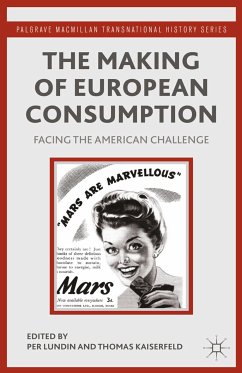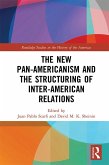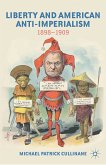This volume presents Germany as a case study of the impact of American culture throughout a period characterized by a totalitarian system, two unusually destructive wars, massive ethnic cleansing, and economic disaster. Drawing on examples from history, culture studies, film, radio, and the arts, the authors explore the political and cultural parameters of Americanization and anti-Americanism, as reflected in the reception and rejection of American popular culture and, more generally, in European-American relations in the "American Century."
Dieser Download kann aus rechtlichen Gründen nur mit Rechnungsadresse in A, B, BG, CY, CZ, D, DK, EW, E, FIN, F, GR, HR, H, IRL, I, LT, L, LR, M, NL, PL, P, R, S, SLO, SK ausgeliefert werden.









